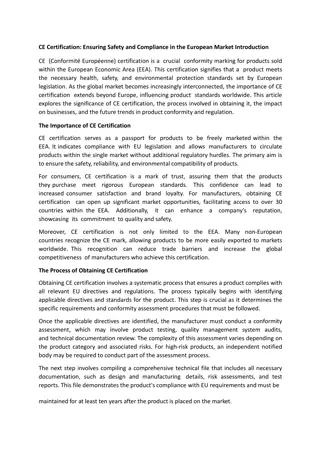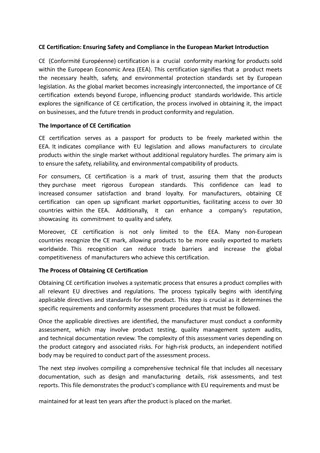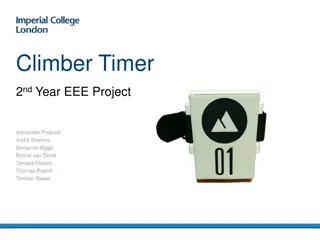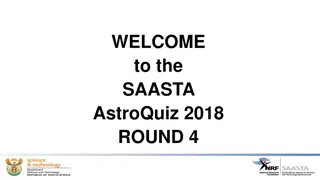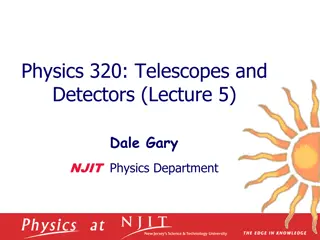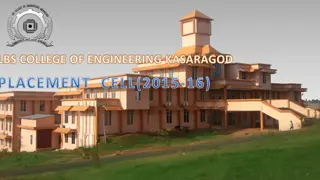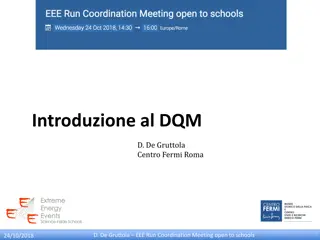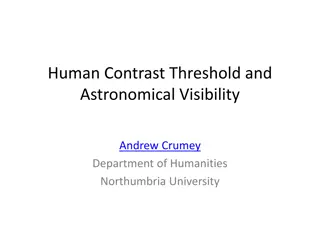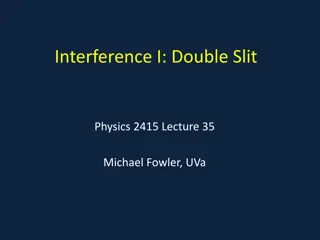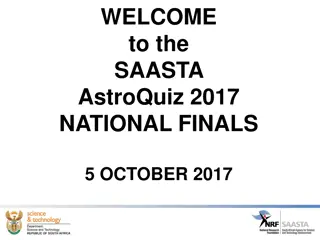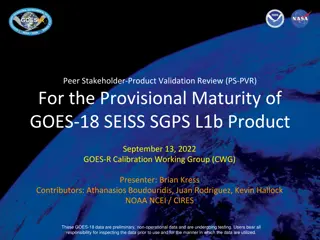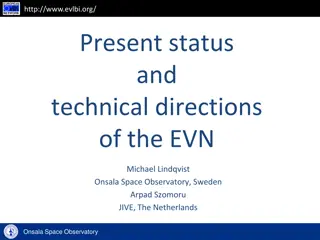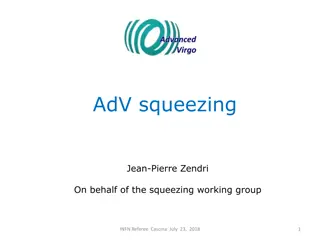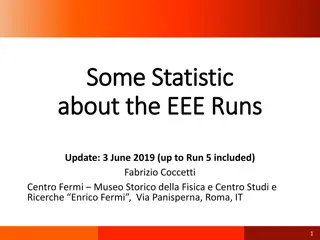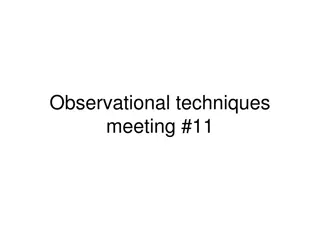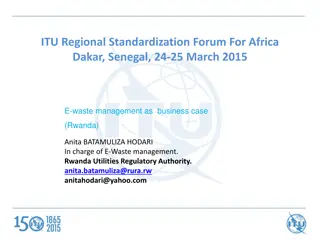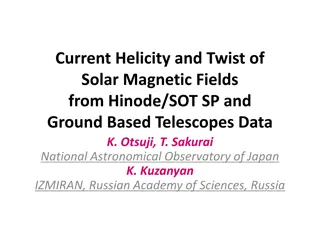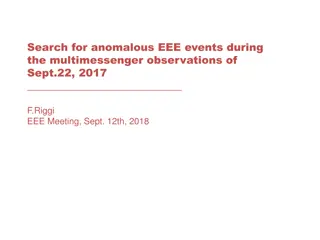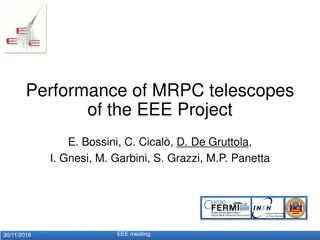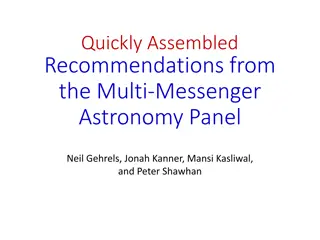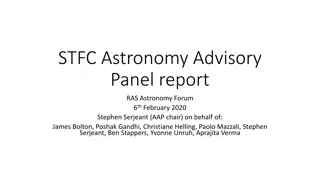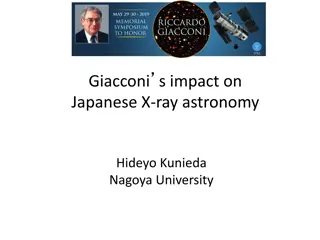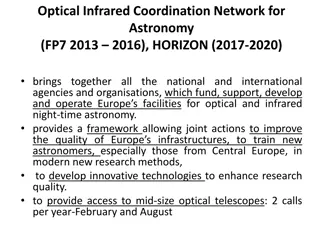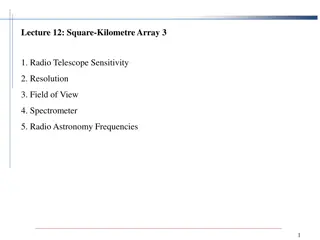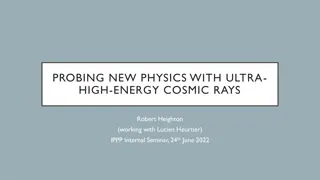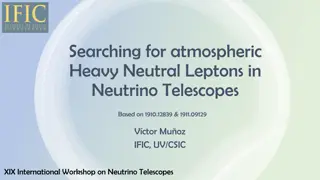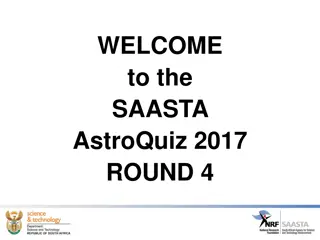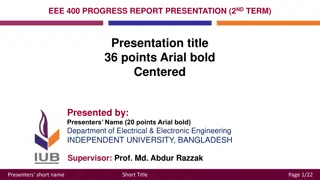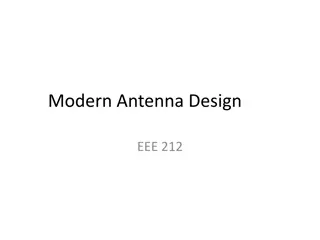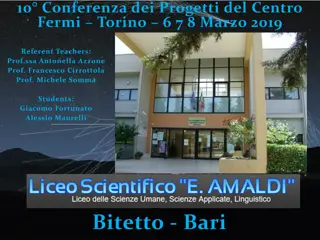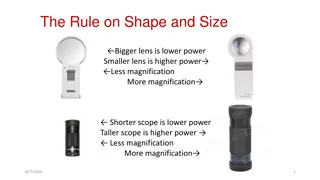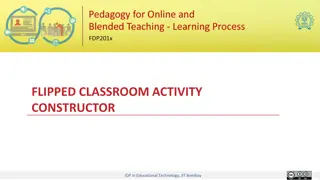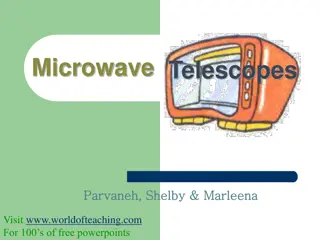ACERCA DE CE CERTIFICATION
El marcado CE es una marca de certificaci\u00f3nesencialsiplanea vender suproductoenel Espacio Econ\u00f3micoEuropeo (EEE). CE: \u201cConformiteEuropene\u201d, que significaconformidadeuropea. Estamarca describe elproducto y suembalajeest\u00e1fabricado de acuerdo con las Directivaseuropeas. Adem\u0
0 views • 3 slides
ACERCA DE CE CERTIFICATION
El marcado CE es una marca de certificaci\u00f3nesencialsiplanea vender suproductoenel Espacio Econ\u00f3micoEuropeo (EEE). CE: \u201cConformiteEuropene\u201d, que significaconformidadeuropea. Estamarca describe elproducto y suembalajeest\u00e1fabricado de acuerdo con las Directivaseuropeas. Adem\u0
2 views • 3 slides
Climber Timer: Innovative Climbing Center Solution by EEE Project Team
Climber Timer is an innovative solution developed by a team of EEE project members to help climbers easily time and log their climbs at climbing centers. The device is designed to retrofit onto existing walls and offers features like ascent time recording, auditory feedback, and data upload capabili
0 views • 24 slides
SAASTA AstroQuiz 2018 Round 4 - Test Your Astrophysics Knowledge!
Challenge your knowledge of astronomy with these 10 questions from the SAASTA AstroQuiz 2018 Round 4. Test your understanding of telescopes, galaxies, planets, and more in this exciting quiz. Answer questions on various aspects of astronomy, from telescope construction in South Africa to planetary r
0 views • 44 slides
Optical Telescope Types and Lens-Maker's Formula
Optical telescopes utilize lenses or mirrors to collect and focus light for imaging celestial objects. The lens-maker's formula is crucial for determining the focal length of lenses, considering factors like index of refraction and radii of curvature. Different lens configurations and materials help
0 views • 17 slides
Job Offers Received by Students in Placement Drives at LBS College of Engineering
In the academic year 2015-16, LBS College of Engineering at Kasaragod witnessed successful campus recruitment with various companies offering job placements to students. Companies like ELGi, Indus Towers, INFOSYS, and IBM extended job offers to students from branches such as ECE, CSE, EEE, and ME. T
0 views • 16 slides
Troubleshooting Telescopes Using Ratios and Multiplicities
A detailed process of identifying and resolving issues with telescopes by comparing ratios of counts and utilizing different thresholds. It involves examining ring multiplicities, eliminating problematic channels, and achieving flat, well-aligned results. The method includes optimizing settings and
3 views • 17 slides
Effective Data Taking and Quality Monitoring in EEE Run Coordination Meeting
The Data Quality Monitor (DQM) plays a crucial role in ensuring the effective data taking period in the EEE Run Coordination Meeting for schools. It involves monitoring key quantities using specific tools, analyzing data, and checking for correct behavior. The acquisition of data is essential for st
0 views • 33 slides
Human Contrast Threshold and Astronomical Visibility
Delve into the practical implications of human contrast threshold and astronomical visibility to explore the faintest stars visible to the naked eye or through telescopes under various lighting conditions. This study aids in comprehending the essence of dark skies, the historical evolution of light
0 views • 28 slides
Optics and Magnification in Physics
Today's lecture covers a brief review of optical instruments, Huygens principle, refraction phenomena, and Young's double slit experiment. The session delves into magnifying glasses, magnification power definition, astronomical telescopes, and simple and compound microscopes. Key concepts include th
8 views • 20 slides
SAASTA AstroQuiz 2017 National Finals - Test Your Astronomy Knowledge!
Dive into the SAASTA AstroQuiz 2017 National Finals where participants are challenged with intriguing questions about space, stars, and telescopes. Stay silent, think fast, and answer correctly to win prizes and glory! Explore topics ranging from satellites to spacecraft missions as you unravel the
0 views • 41 slides
GOES-18 SEISS Solar Galactic Proton Sensor Product Validation Review
GOES-18 SEISS SGPS L1b product is undergoing provisional maturity testing by the GOES-R Calibration Working Group. The review includes evaluation of product quality, supporting instruments, health tests, and path to full validation. Users are responsible for inspecting and utilizing the preliminary
0 views • 39 slides
European Deep Space Surveillance and Tracking Collaboration
EU Space Surveillance and Tracking program involves five European nations collaborating to assess and reduce risks to European spacecraft, provide early warnings for re-entries and space debris, and prevent space debris proliferation. Available deep space sensors, such as optical telescopes, are uti
1 views • 8 slides
Overview of European Very Long Baseline Interferometry Network (EVN)
The European Very Long Baseline Interferometry Network (EVN) is a collaborative effort among major institutes in Europe to conduct advanced astronomical observations using a network of radio telescopes. The EVN, established in 1980, facilitates innovative research through effective collaboration, te
0 views • 23 slides
Advanced Virgo Squeezing Working Group Overview
The Advanced Virgo (AdV) project involves various activities related to squeezing technology, optical layouts, Faraday isolators, and electronics. The project includes components like the squeezer, clean room, detectors, telescopes, and alignment systems. The installation, commissioning, and status
0 views • 34 slides
EEE Runs Update: Statistics and Performance Summary as of June 3, 2019
Total tracks acquired, days of data taking, candidate tracks per day, performance metrics, and duty cycle information for the EEE telescope network up to Run 5, as reported by Fabrizio Coccetti at Centro Fermi Museo Storico della Fisica e Centro Studi e Ricerche Enrico Fermi in Rome, Italy. The netw
0 views • 16 slides
Overview of Observational Techniques and Student Talks in Astronomy
This content covers observational techniques, student talks, and dates related to various astronomical topics such as gamma-ray astronomy, basics of gamma-ray interaction, scintillators and solid-state detectors, Compton telescopes, and pair telescopes. It provides insights into the main processes i
0 views • 23 slides
E-Waste Management in Rwanda: A Business Case Overview
Explore the E-waste management scenario in Rwanda through a presentation by Anita BATAMULIZA HODARI at the ITU Regional Standardization Forum for Africa in 2015. The outline covers types of E-waste in Rwanda, stakeholders involved, importation and usage data of EEE devices, material flows, managemen
0 views • 18 slides
Statistical Analysis of Solar Magnetic Fields from Hinode/SOT SP Data
Statistical analysis was conducted on solar magnetic fields using data from the Hinode/SOT SP and ground-based telescopes. The study examined current helicity, magnetic twists, and helical parameters, revealing hemispheric sign rules and variations based on field strengths. Results show different he
0 views • 13 slides
Anomalous EEE Events During Multimessenger Observations
On Sept. 22, 2017, a high-energy neutrino event was observed by the IceCube Neutrino Observatory, potentially associated with a blazar. A search for anomalous EEE events during this period identified active telescopes and investigated coincident events. The significance of N-fold coincidences was di
0 views • 20 slides
Performance Analysis of MRPC Telescopes in the EEE Project
Detailed examination of the performance of MRPC telescopes in the EEE Project, focusing on topics such as time resolution, time slewing correction comparison, beta distributions, and Time Over Threshold strategy for time correction. The analysis involves understanding contributions, applying correct
0 views • 17 slides
Quick Recommendations for Multi-Messenger Astronomy Advancements
Top astrophysicists Neil Gehrels, Jonah Kanner, Mansi Kasliwal, and Peter Shawhan suggest leveraging existing resources like global GW networks and optical/radio surveys. They propose supporting EM capabilities development, NASA missions, and data mining for efficient observations. Additional fundin
0 views • 6 slides
Insights into AAP Priority Projects for Astronomy Advancements
The STFC Astronomy Advisory Panel's reports discuss Priority Projects focusing on innovative ideas in astronomy, such as new telescopes, receiver systems, and radio astronomy proposals. The panel aims to cover a broad range of interests and strengthen scientific endeavors in various areas, seeking f
0 views • 11 slides
Riccardo Giacconi's Impact on Japanese X-ray Astronomy
Riccardo Giacconi played a significant role in Japanese X-ray astronomy, influencing the first generation of X-ray astronomers in Japan and contributing to the development of X-ray telescopes. His visits and collaborations with Japanese scientists, such as Hideyo Kunieda and Yasuo Tanaka, were instr
0 views • 8 slides
Optical Infrared Coordination Network for Astronomy (FP7 2013-2016), HORIZON (2017-2020)
This network consolidates funding and support for Europe's optical and infrared astronomy facilities, aiming to enhance infrastructure, train new astronomers, and develop cutting-edge technologies. It emphasizes collaboration among national and international agencies, optimizing access to mid-size t
0 views • 20 slides
Radio Telescope Sensitivity and Resolution in Radio Astronomy
This lecture covers the concepts of radio telescope sensitivity in detecting small temperature variations from the sky, including factors such as radiometric sensitivity, antenna noise temperature, receiver system noise, and more. Additionally, it touches upon the resolution capabilities of radio te
0 views • 22 slides
Unraveling the Mysteries of Ultra-High-Energy Cosmic Rays and Neutrinos
Delve into the exploration of ultra-high-energy cosmic rays and cosmogenic neutrinos in the quest to uncover new physics phenomena. Examining the GZK limit, cosmic accelerators, detection methods, and the potential for detecting tau neutrinos in Earth, this seminar presents a comprehensive overview
0 views • 28 slides
Heavy Neutral Leptons in Neutrino Telescopes
Atmospheric Heavy Neutral Leptons are being studied in neutrino telescopes to search for GeV Heavy Neutral Leptons, with a focus on their production in cosmic showers, flux at detectors, and signals from decay. Research explores minimal and non-minimal scenarios, revealing opportunities to probe a w
0 views • 9 slides
Experimental Setup at IP5 for Inelastic Events and Particle Detection
Experimental setup at IP5 involves inelastic telescopes for charged particle detection and vertex reconstruction. The setup includes T1 and T2 telescopes, HF and CASTOR detectors, as well as Roman Pots for measuring elastic and diffractive protons. The TOTEM experiment focuses on proton-proton inter
0 views • 27 slides
SAASTA AstroQuiz 2017 Round 4: Challenge Your Astronomy Knowledge!
Welcome to the SAASTA AstroQuiz 2017 Round 4! Engage in a timed quiz where you must answer a series of questions related to astronomy within 60 seconds. Explore diagrams and information about celestial bodies like the Earth, Moon, and Sun. Test your knowledge on eclipses, shadows, and telescopes. Ge
0 views • 35 slides
EEE 400 Progress Report Presentation: Research on Electrical & Electronic Engineering at Independent University, Bangladesh
This presentation covers the progress report of a research project in Electrical & Electronic Engineering at Independent University, Bangladesh. It delves into the background, motivation, existing systems, challenges, methodology, proposed system design, experimentation results, and solutions for co
0 views • 22 slides
Overview of Impedance and Reflection Coefficient in 1-Port Network Transmission Lines
Explore the fundamentals of 1-port networks, focusing on impedance, admittance, and reflection coefficient. This lecture from EEE 212 delves into the review of these key concepts essential for modern antenna design. Drawing insights from HP/Agilent Application Note 95-1, the discussion provides a fo
0 views • 140 slides
Importance of Mosquito Control for Disease Prevention in Maine
Learn about mosquitoes, their habitats, diseases they can carry, and ways to prevent mosquito bites to protect yourself from diseases such as Eastern Equine Encephalitis (EEE) and West Nile virus in Maine.
0 views • 16 slides
Investigating Cosmic Rays with Student Researchers at Liceo Amaldi
A group of 40 students from Liceo Amaldi have been actively involved in the Extreme Energy Events project, studying cosmic rays and telescopic data. Utilizing software like Lazarus, Excel, and Root, they have analyzed the speed and angular distribution of cosmic ray muons. The students also went to
0 views • 19 slides
Visual Tools and Techniques for Enhanced Viewing Experience
Explore the rules and strategies for maximizing the effectiveness of magnifiers and telescopes in this informational presentation. Learn how to choose the right lens power, use proper stabilizing techniques, and find the sweet spot of focus. Overcome common roadblocks and discover new ideas to enhan
0 views • 12 slides
Flipped Classroom Activity Constructor: Enhancing Educational Technology
Advance your knowledge in educational technology with the Flipped Classroom Activity Constructor IDP from IIT Bombay. Dive into innovative teaching methods, out-of-class and in-class activities, and aligning assessments with learning objectives. Explore topics like Karnaugh maps, Boolean expressions
0 views • 17 slides
Microwave Telescopes
Microwave telescopes play a crucial role in understanding the universe's origins, from detecting cosmic microwave background radiation to unraveling mysteries like the Big Bang theory. These telescopes have been instrumental in studying the geometry, expansion rate, and age of the universe, shedding
0 views • 23 slides
